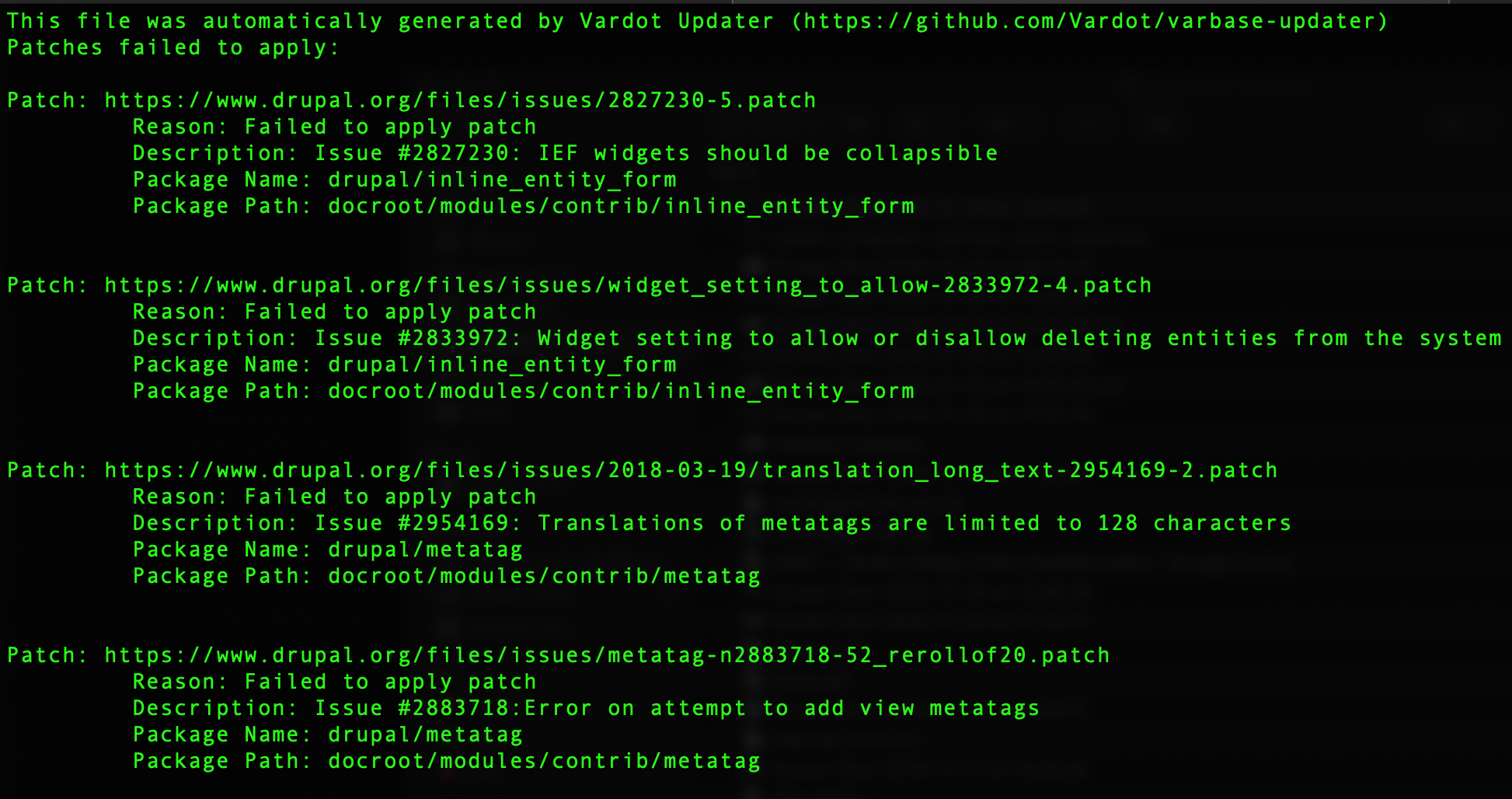Handling Patches When Updating
Background
Patching Scenarios
How Vardot Will Handle Those Cases


Installing Vardot's composer-patches Package
Varbase 8.6.3 or greater
Varbase 8.6.2 or older
Last updated